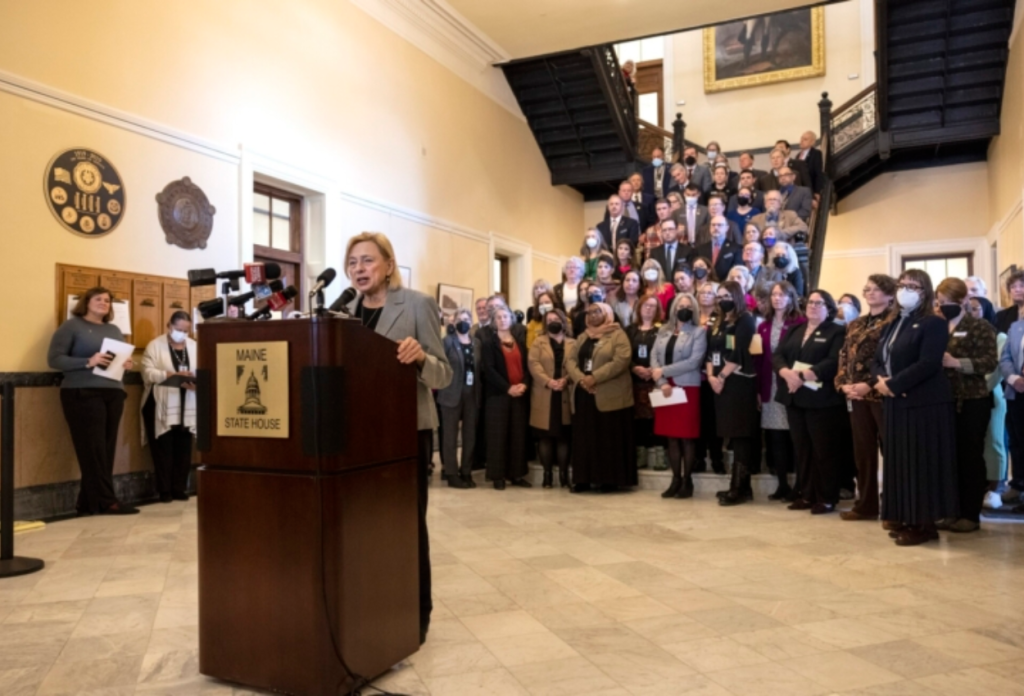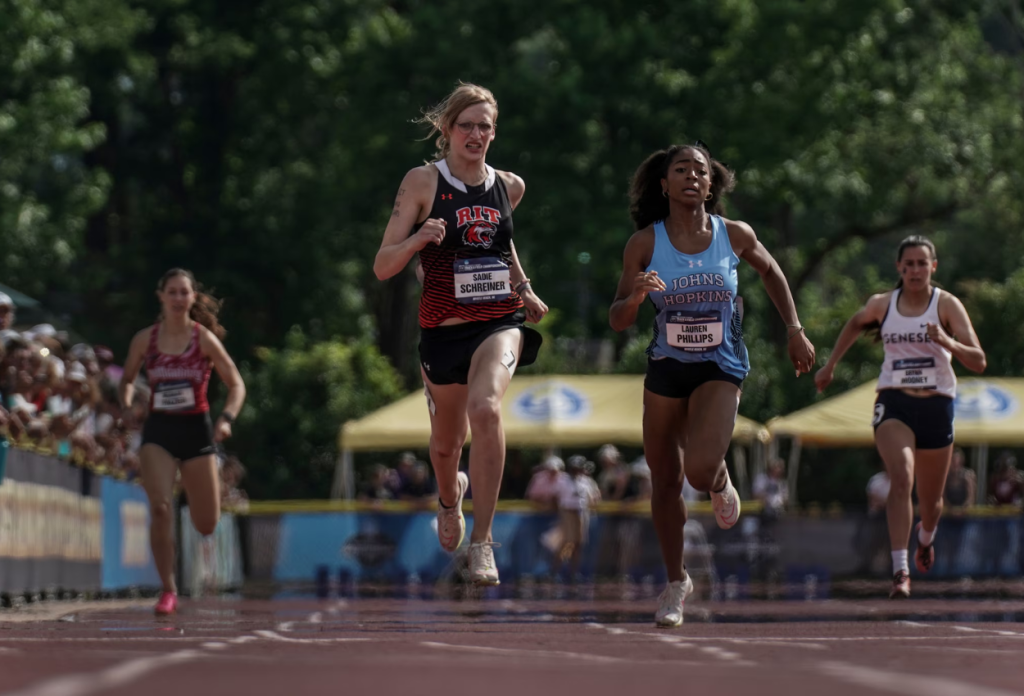A school district in Maine has made it clear—they are not backing down. Despite pressure from former President Donald Trump’s administration to ban transgender athletes from competing in girls’ sports, Maine School Administrative District 51 has refused to comply.
The district, which includes Greely High School, became the center of national debate earlier this year when a transgender athlete won a girls’ pole vault competition.
However, instead of following Trump’s ultimatum, the district has chosen to stand by Maine’s existing laws and the Maine Human Rights Act, which protect transgender rights in school sports.
In a public statement, district officials reassured students that they remain committed to fairness and inclusivity: “To our students: Thank you for your maturity, perseverance, and dedication to learning through these distractions. Please continue to lead the way.”
Maine Stands by State Laws Despite Public Opinion Split

The Maine Principals’ Association also confirmed its stance, stating that it is bound by state laws that govern participation policies in school sports. This means transgender athletes will continue to compete based on their gender identity.
However, public opinion in Maine appears divided on the issue. A recent survey by the American Parents Coalition found that:
- 63% of Maine residents believe sports participation should be based on biological sex.
- 66% think women’s sports should be exclusively for biological females.
- 60% support a ballot measure restricting participation in women’s and girls’ sports to biological females.
Despite these statistics, Maine’s education officials have prioritized legal compliance over political pressure, standing firm against Trump’s demands.
Political Clash Escalates Over Transgender Athlete Controversy

The controversy intensified after Maine Republican state Rep. Laurel Libby publicly identified the transgender athlete on social media, sparking outrage and security concerns. The backlash led to police protection for the school to ensure student safety.
In response, the Maine legislature censured Libby, but she has since filed a lawsuit to challenge the decision. Meanwhile, Trump has taken direct aim at Maine Gov. Janet Mills, demanding that she take action against transgender participation in girls’ sports.
Their feud reached new heights on Feb. 20, when Trump threatened to cut federal funding to Maine if the state refused to enforce his transgender athlete ban. The very next day, Mills’ office fired back, warning that Maine would pursue legal action against the Trump administration if funding was withheld.
The tension peaked during a high-profile White House meeting, where Trump and Mills engaged in a heated debate in front of other state governors.
What’s Next for Maine’s School Sports Policies?
Despite political threats, public division, and national attention, Maine school officials remain unwavering in their decision. Their commitment to following state laws, rather than bending to federal pressure, signals a growing state-versus-federal battle over transgender rights in school sports.
For now, transgender athletes in Maine will continue to compete under existing policies—but with ongoing legal battles and political debates, this issue is far from over.




